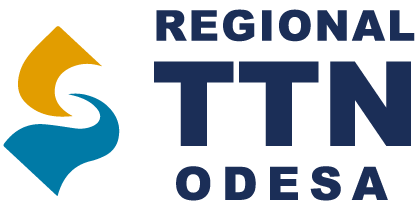How a former ballerina turned a mirror into a $ 300 million business
Forbes tells the story of the ballerina Brynn Putnam: the girl created an interactive mirror for home training, which instantly turns any room into an elite gym. Now her business is already valued at $ 300 million. AIN.UA journalist prepared an abridged translation.

On March 13, when New Yorkers began preparing to introduce a self-isolation regime because of the coronavirus, founder of technology fitness startup Mirror Brynn Putnam transferred about 100 office workers to remote work. On the same day, she and her husband Lowell went to quarantine in her apartment in Greenwich Village. At home, the couple has to take turns: while one communicates through Zoom in the bedroom, the other looks after their 3-year-old son George in the living room.
With training in their apartment is much simpler, because everyone has their own interactive mirror. “If Lowell wants to box, and I do yoga, we can do it at the same time and not interfere with each other”, – says the 36-year-old entrepreneur.
Mirror, along with Peloton, became the most popular fitness startup during a pandemic, while still having a significant advantage that Peloton’s “smart” simulators cannot compare with – compactness. In appearance, the Putnam interactive mirror is not very different from the usual: its width is 56 cm, height is 132 cm and thickness is 3.5 cm.
By turning it on, users will see not only the trainer who is conducting the lesson, but also their reflection in order to monitor the implementation technique and work on improving it. Mirror also provides personalized recommendations and allows you to track the achievement of fitness goals. The gadget will cost the buyer $ 1,495 and an additional $ 39 monthly user will be given access to a variety of online classes lasting 15, 30 or 60 minutes.
In September 2018, when the product was launched, the entrepreneur relied on a gradual transition to home fitness and did not fail. Now that millions of people are sitting at home and desperate for exercise, selling an interactive gadget exceeds all its forecasts. According to American Forbes, the company’s revenue in 2020 will exceed $ 100 million, which Putnam herself confirms.
She has already raised $ 72 million from the Lerer Hippeau, Spark Capital and Point72 Ventures funds, after which the company was valued at just under $ 300 million. According to Putnam, her main task for the future is to make Mirror part of a “normal” life, and not a fleeting trend in pandemic time.
The story of Brynn Putnam
Brynn Jinnett Putnam grew up in the Upper East Side of Manhattan, in the family of a lawyer and a housewife. At the age of 3, she began dancing, and at 7 she entered the School of American Ballet, founded by George Balanchine. Her debut in the New York City Ballet was captured in the New York Times, and in the same year she played in The Nutcracker.
After college, she went on tour with the Pennsylvania Ballet and Les Grands Canadiens de Montréal. In her free months, she taught ballet and fitness lessons in New York. In addition to dancing, Putnam had other interests – she studied Russian literature and culture at Harvard.
After ten years ago, she left professional ballet, she had the idea to open her own fitness studio. At that time, she had only $ 15,000 personal savings, which complicated the search for a suitable location in Manhattan. But the place was found unexpectedly: passing by the Orthodox Church in the Upper East Side, she heard Russian speech, and talking to the priest and parishioners, she learned that they have free space.
“The catch was that every Sunday we had to clean all the equipment in order to return the church to its usual form”, – says Putnam.
Another problem was the lack of space for standard equipment. And then they, together with her husband, co-founder of the Quovo fintech startup, who had been involved in sailing since childhood, found a solution. The couple created wall-mounted simulators from sailing blocks and elastic bands, which allowed everyone to perform strength exercises in confined spaces without inconvenience. So in 2010, the Refine Method studio appeared, which soon grew into a network of small fitness rooms.
“Mirror is the next iPhone”
By 2016, pregnancy and morning sickness did not allow Putnam to lead a familiar lifestyle and spend a lot of time in the studio, and she did not want to have a bike from Peloton in the apartment. All the online training she tried also did not satisfy her. The moment of enlightenment came to the entrepreneur when she perfected Refine, adding mirrors to small halls, from which customers were delighted. “Then I realized that many of the technologies I was thinking about could fit in a mirror”, – she says.
Putnam created the first prototype of an interactive mirror in her kitchen, combining a cheap tablet with Amazon, a piece of glass and an inexpensive Raspberry Pi computer. By the time she managed to make him attractive to attract investors, Putnam was in her seventh month of pregnancy. Many refused her, because they did not really want to invest in an idea created by a pregnant woman entrepreneur. But Putnam did not want to wait and be content with three small halls of her network. An investor was found and she received the initial financing on her son’s birthday on November 15, 2016.
Putnam’s team initially worked on a product in her kitchen. Then, when engineers joined her, they moved into WeWork space. Testing the Mirror gadget took place right at the Refine studio. “It was huge with lots of metal, and it was impossible to move”, – says Kaley Combs, Putnam’s colleague at Refine, and now vice president of Mirror.
But it was the lack of technical expertise that became an advantage for a startup, which allowed the entrepreneur to focus on issues important to customers, rather than creating the perfect product, Putnam said. For her, the dimensions of the mirror, its appearance and the perfect balance between video transmission and reflection, were of great importance.
Putnam launched the product in 2018. Soon celebrities became interested in an interactive mirror. Mirror was acquired by Reese Witherspoon, Ellen DeGeneres, Gwyneth Paltrow and Kate Hudson. The combination of fitness and technology with the famous names that Putnam used for advertising was ideal for the rapid development of the business.

Although the pandemic was a significant threat to gyms, it accelerated the process of moving fitness to the home environment, which many thoughts was destined to begin in 1982, when Jane Fonda released her first training recordings.
Peloton, with its smart equipment, Tonal, which offers users a home gym with 3D modeling and artificial intelligence, FightCamp, which sells home boxing and kickboxing classes, is now contributing to the development of this business. There is even one more interactive mirror from Echelon startup called Reflect.
Despite all the variety of gadgets, Putnam has an ambitious plan: to do everything possible so that people perceive the Mirror product as an integral part of their life.
“I think Mirror is the next iPhone”, – she says without irony..
The fitness startup really does not stand still: he began to collaborate with the Lululemon yoga clothing brand, adding meditation practices to the training program. Also, individual lessons with trainers worth $ 40 each have already appeared. The next step is the introduction of physiotherapeutic procedures and rehabilitation sessions, although it is still not very clear whether insurance companies will agree to this. Putnam believes that in the long run, Mirror smart mirrors could be used for telemedicine and for conducting sessions with psychologists.
In fact, potential partners constantly contact Putnam and offer her a variety of cooperation options: from distance education to scrapbooking workshops. The number of offers is impressive. “How to learn to say no if you run a business with huge potential that is developing so fast? It was the hardest, but most important lesson in 18 months”, – says Putnam.
Source: ain.ua











